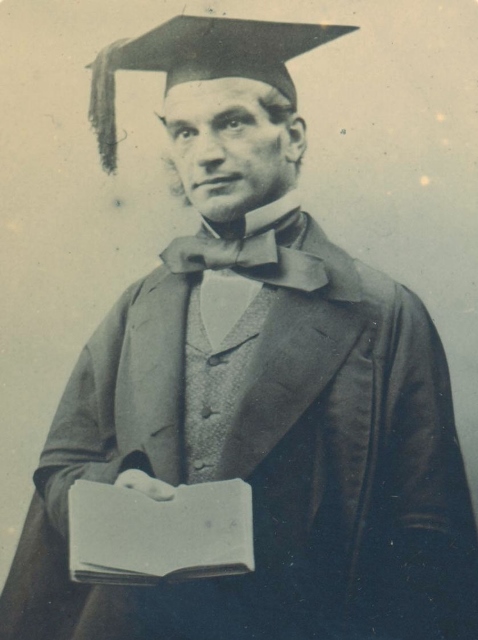A race to Neptune

This exhibition marks the bicentenary of the birth of John Couch Adams, who discovered the planet Neptune by means of mathematical calculation. Fascinated by astronomy from childhood, as an undergraduate Adams had already noticed that the planet Uranus was not behaving quite as expected. He suspected that an as yet undiscovered planet was affecting its orbit, and wrote himself a note in 1841 that once he’d taken his final exams he would investigate the phenomenon. Having graduated top in the University in 1843 he embarked upon a series of increasingly accurate calculations to predict the position and properties of the new planet. In 1845 he left a note of his conclusions at the Royal Observatory, hoping that observations would be carried out to confirm his results. Various unfortunate delays ensued, and his discovery remained unconfirmed and unpublished for many months. In the meantime, over in France Le Verrier was independently carrying out his own set of calculations and coming to virtually identical conclusions. His results were speedily published, and the Berlin Observatory leapt into action immediately on receipt of his figures, pinpointing the new planet on the very first night of observations. Neither Adams nor Le Verrier had been aware of the other’s work and the scientific community was divided over which of them should receive credit for the discovery of the new planet.
This exhibition explores Adams’s life and work: his childhood in Cornwall, his student days at St John’s, the discovery of Neptune, and his long career in astronomy. Through his letters and diaries, his books and belongings, and the testimony of those who knew him, we catch a glimpse of the man himself.
Free and open to all, the exhibition runs from Monday 7 October to Friday 6 December in the Library Exhibition Area. Open 9:00 to 17:00 Monday to Friday.